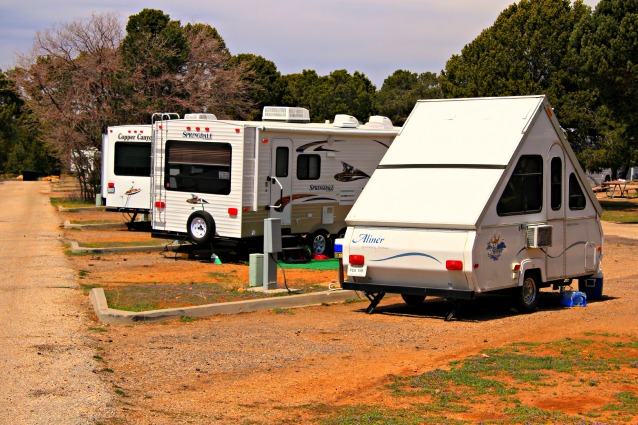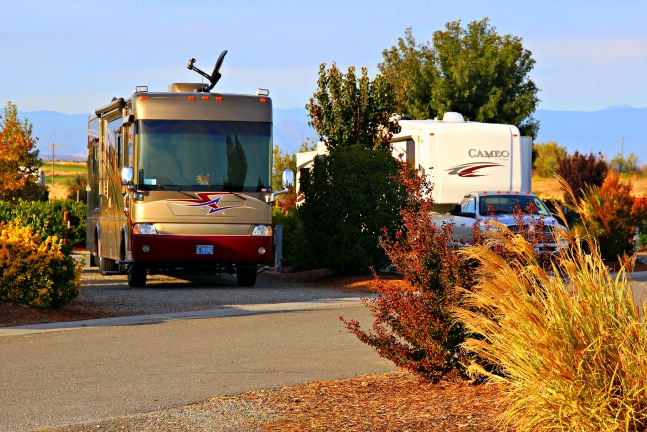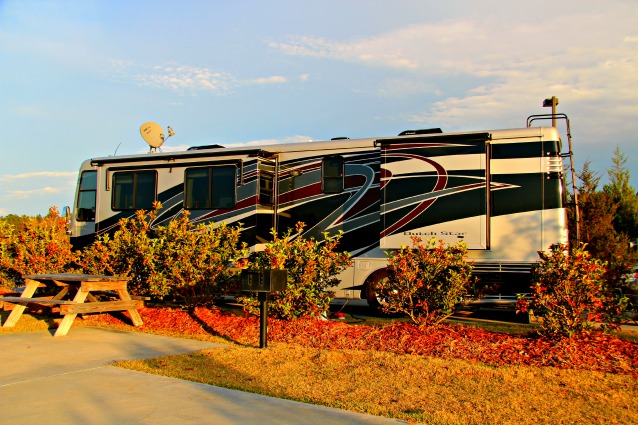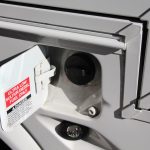There is nothing particularly obvious about choosing an RV. And it’s not reasonable to expect that everyone will have a chance to drive every kind of RV before they purchase one.

Pop-up camper and travel trailer camped at Canyon Gateway RV Park, Williams, Arizona © Rex Vogel, all rights reserved
Purchasing an RV is a personal choice, not unlike buying a new car or house, computer or smart phone, furniture or household appliances.
You cannot simply decide to buy an RV and buy it—at once. There are numerous things that should be kept in mind before you’re prepared to make that crucial decision. When buying an RV that suits your requirements, you need to consider type of RV, new or preowned, size, ease of driving, type of camping, cost, manufacturer, dealer, model and floor plan and much more.
Very often, people buy the wrong RV, only to be disappointed and trade it in or resell it less than a year later only to lose thousands of dollars in the transaction.
Buying an RV can be a frustrating experience—it can be intimidating and confusing. Since there’s a myriad of RVs available for purchase, it can be confusing trying to decide which one is best for you and your family and it’s not easy to know where to begin.
I’m not going to discuss all the different features and options on various types of RVs or tell you which models are best (something that is really quite personal and which changes over time); however, there are a few questions and factors to keep in mind when selecting the best RV for you and your family. I’ll provide my advice on purchasing an RV which comes from my personal experience of buying numerous types of RVs and various models.
Here are a few questions that’ll help you narrow down what to buy. What type of camping or RV travel will I do? Weekends at the lake? Summer vacation? Months at a time? Snowbird? Full-time RVing?
What type of RV should I get? Pop-up trailer? Truck camper? Travel trailer? Fifth wheel trailer? Motorhome? The classing system for motorhomes starts with Class B as the smallest, Class A as the largest and Class C in between. Gas or diesel?
Towing? Whether you’ll be towing your trailer or towing another vehicle behind your motorhome, make sure you have the right vehicle and appropriate towing hitch. Be aware of and check GVWR (Gross Vehicle Weight Rating) and CVWR (Combined Vehicle Weight Rating).
Where will I camp most of the time? Full service RV parks? Campgrounds with minimal services? National, state, or county parks? BLM? Off grid? Wilderness camping?
How much cooking will I do? Large kitchen with appliances, plenty of counter space, and food storage areas?
How much storage space will I require? How many people do you need to pack for? Consider the amount of food and clothes you will want to take—plus all the toys, games and sports equipment?
If you’re like most RVers, you’ll need to finance at least part of your purchase. Check with your bank or lending institution to determine your credit limit and interest rate prior to shopping for the RV of your dreams. Related costs? Fuel? Maintenance and service? License fees? Insurance? Storage? Financing?
With any RV, there are bound to be some compromises. The important thing is to avoid surprises. As long as you keep your expectations in line with reality, you can still have a ton of fun and freedom in your new RV.




Bob Shepherd
We are considering a Class C. 2 particular chassis are being considered – Dodge Promaster and the Mercedes 3500 dually. We have also looked at the Forest River Prism on a Mercedes 3500 platform and the Navion platform. We are possibly going to spend up to a month on the road, 2 people the majority of the time, and a Yorkie.
Any thoughts on the Class C as well as the Dodge versus the Mercedes?
Thanks and I appreciate your article.
Bob Shepherd
craig Wicke
My Wife and I are going to purchase a class A motorhome and become full-time RVers. We have researched many brands and have decided the one we like. How can we find people that have owned this model, reviews and opinions about the company and the good and bad. We would like to know if it is feasible to live in a motor home in the winter in the north east?